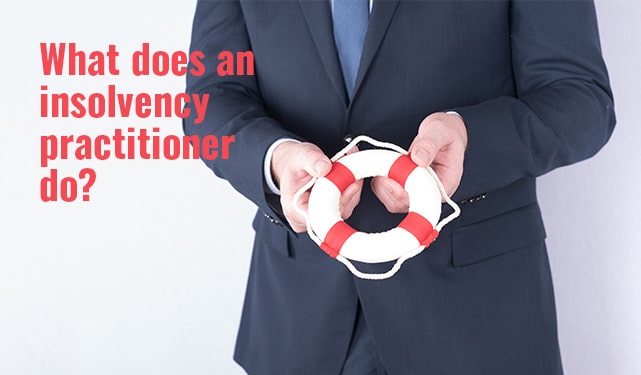Insolvency Practitioner Things To Know Before You Get This
Excitement About Insolvency Practitioner
Table of ContentsHow Insolvency Practitioner can Save You Time, Stress, and Money.10 Simple Techniques For Insolvency PractitionerWhat Does Insolvency Practitioner Do?Our Insolvency Practitioner IdeasInsolvency Practitioner Can Be Fun For Anyone
Whether or not you need to use a bankruptcy specialist (IP) to liquidate your firm depends on numerous variables. While engaging an insolvency practitioner for all types of liquidation is not a legal demand, doing so can frequently enhance the procedure and guarantee compliance with lawful needs. Liquidating a business is an important decision that features substantial effects.
It is a procedure made use of when a company does not have any type of financial institutions, or all of their financial institutions can be settled in full with legal passion. Comprehending the different kinds of bankruptcy processes can aid you establish the very best strategy for your firm's liquidation or other official bankruptcy treatments itself.
This is required in order to abide by legal needs - Insolvency Practitioner. This is because IPs have the needed qualifications and experience to make sure that the liquidation process is carried out based on all applicable legislations and regulations. By engaging a certified bankruptcy expert, you can have satisfaction knowing that your business's liquidation process will certainly be taken care of professionally and in compliance with the pertinent lawful requirements
Some Ideas on Insolvency Practitioner You Should Know
The insolvency specialist is designated as a liquidator and is in charge of handling the firm and liquidator's financial obligations exceptional obligations and properties. This procedure entails selling the business's assets and dispersing the profits to lenders. Upon completion of the procedure, the firm is gotten rid of from the register at Business House.
Failing to do so can lead to individual obligation for the business or director for the financial institution's financial obligations. Volunteer liquidation, which consists of Creditors' Voluntary Liquidation (CVL) and Members' Voluntary Liquidation (MVL), is launched by the company's supervisors and shareholders when they can no more pay their financial obligations. In a CVL, the insolvency professional is assigned as the liquidator, responsible for taking care of company financial obligations and all company possessions.

Getting My Insolvency Practitioner To Work
By evaluating the proficiency and experience of possible bankruptcy practitioners, you can click this site ensure that you choose a specialist who possesses the needed qualifications to manage your firm's liquidation procedure effectively. While insolvency practitioner-led liquidation is usually one of the most proper course of action for firms encountering bankruptcy, there are alternate techniques to think about, such as striking off and partial liquidation.
It's important to evaluate all available alternatives prior to selecting the following finest solution or strategy for your business. Striking off business' signs up is a much more uncomplicated and economical means to shut inactive or little companies without any financial obligations or properties. To strike off a company, its name is removed from the Business Residence register by sending type DS01.
Prior to going with striking off, it's essential to weigh the benefits and downsides of this strategy and consider whether it's the ideal choice for your service. Partial liquidation is another alternative to insolvency practitioner-led liquidation, wherein a firm sells off certain assets and obligations while remaining to run with the staying assets and obligations.
An Insolvency see here Practitioner will be able to recommend you of the best training course of activity to take and guarantee that whatever runs smoothly. However, it is not possible to liquidate a company without a liquidator. Assigning an authorised insolvency professional is needed for the process of voluntary liquidation to begin.
Facts About Insolvency Practitioner Revealed
It is possible to close and liquidate your business without using a liquidator, given your firm is solvent and you satisfy the eligibility demands to liquify or liquidate it. However, if your business is bankrupt, you might be needed to use a liquidator and start official bankruptcy treatments. Below are some various other insightful short articles relating to business liquidation in the UK:.
Remaining in a position where you're incapable to pay your business's financial institutions is very demanding. In an effort to avoid boosting the level of debt, several companies try to bargain straight with their creditors and agree to a casual setup. If the financial obligation is click this quite small and owed to one creditor, and the creditor is being cooperative, participating in an casual financial debt arrangement is possibly the finest service, instead of looking the internet for 'a bankruptcy practitioner near me'.
On the other hand, if there are multiple financial institutions and the level of financial debt is huge, lenders may not be so eager or cooperative. To avoid liquidation or insolvency, it is better to employ an insolvency expert to draw up formal propositions and negotiate with creditors in your place.
How Insolvency Practitioner can Save You Time, Stress, and Money.
Whilst it is a way to manage debt, there are significant risks involved with this kind of financial debt arrangement - Insolvency Practitioner. If a financial institution wants to get in into a casual arrangement (IA) whereby the borrower has actually concurred to make routine, if lower, settlements to repay the financial debt, it's crucial to adhere to the agreement
.jpg)
The creditor is within their civil liberties to back out of the arrangement and petition the courts for your firm to be liquidated at any time. A formal arrangement that has been recommended by a bankruptcy expert in your place, and agreed by a creditor, offers a much safer choice.